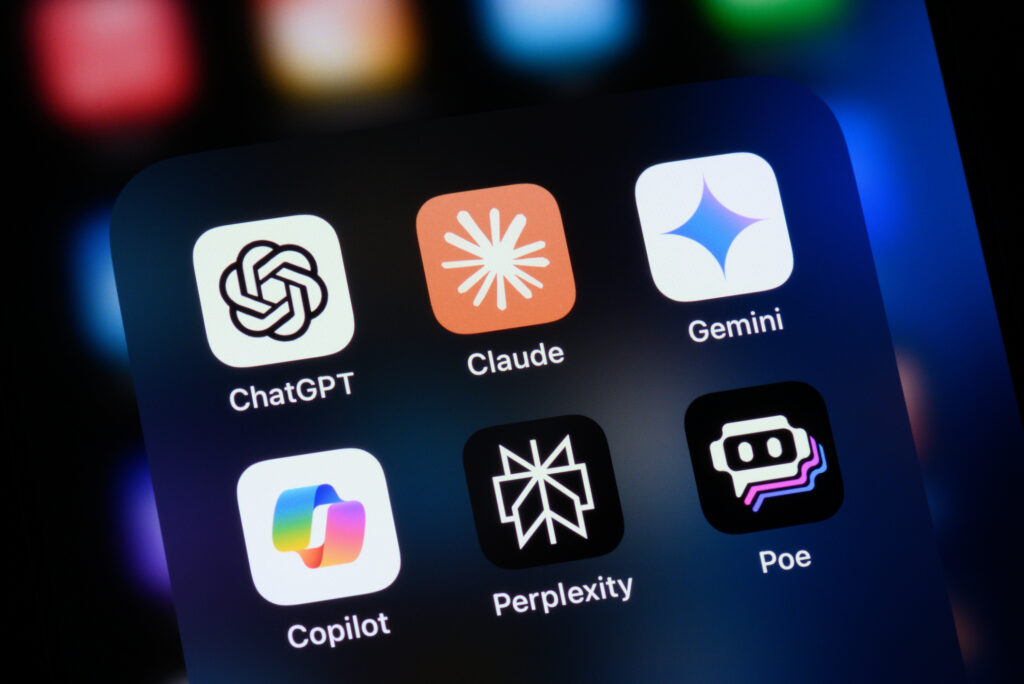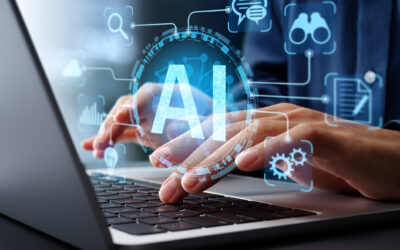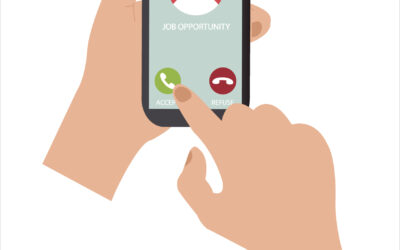Leveraging AI for a Smarter, More Efficient Job Search

In the past year, the increasing accessibility of artificial intelligence (AI) through various user-friendly models has incited both controversy and conversation. Using AI in your job search can be a powerful tool to streamline tasks like drafting cover letters or tailoring resumes to specific job descriptions. However, it’s crucial to review, edit, and personalize the AI-generated content to reflect your unique experiences and voice. Employers appreciate authenticity, and personalized documents and communication show that you’ve taken the time to genuinely engage with the opportunity. Balancing AI’s efficiency with your personal touch is key to a successful job search.
AI is a versatile tool that can take the pain out of the job search process if you know how to use it efficiently. From refining resumes to preparing for interviews, AI platforms offer practical solutions that streamline tasks in real time. Let’s explore a few ways AI can assist you with your job search:
Resume Preparation
AI can assist in resume writing by offering suggestions on structure, content, and formatting to create a more professional and polished document. It can analyze job descriptions and recommend relevant keywords, highlight your most pertinent skills, suggest improvements for clarity and impact, and help avoid common pitfalls like redundant phrasing or excessive length. Just make sure your experience matches the skills and keywords generated by AI.
Certain advanced tools can even customize your resume for each application, showcasing your most relevant skills and experiences. For example, if a job posting highlights product management expertise, the AI can adjust your resume to emphasize your roles and accomplishments in that area. By automating some aspects of the writing process, AI can save time while optimizing your resume for better results.
Improve Your Cover Letter
Your cover letter is often your first impression to a potential employer. AI-powered tools can help you create personalized and relevant cover letters that highlight your unique skills and experiences. An AI model like ChatGPT can help draft a cover letter that aligns with the role by using information from the job description as well as company website. Once you have a personalized, relevant document, AI can assist further by adjusting the tone to ensure it aligns with the expectations of the position and company.
Once you have an outline for your cover letter, take time to make sure your unique voice is evident. When you get to the interview, employers will be expecting to meet the person they were impressed by in your cover letter.
Prepare for Interviews
Whether its your first job, or tenth, the interview process can feel daunting. AI can help settle your nerves by generating potential questions based on the job description, creating questions that you can bring to an interview, and even provide feedback on your tone, cadence, and body language.
Before an interview, it’s important to prepare a few questions, research the expectations of the role, and learn about the company. A chatbot like ChatGPT can provide an outline of relevant news articles, general information, and even company leadership. Using the job posting, prompt ChatGPT with questions like “What questions should I ask in a [first, second, third round] interview for this role?” to receive a list of potential topics to explore with an interviewer.
Other AI models provide opportunities to practice answering questions and thinking quickly – key skills for any interview. Interview Warmup by Google and Huru both prompt a candidate with practice questions and evaluate the responses. By practicing with AI, you can boost your confidence and enhance your performance in real interviews.
Finesse Follow-Up and Thank You Emails
Follow-up and thank you emails are of utmost importance during the interview and job application process. Just as the cover letter was your first impression, this step represents a final opportunity to express interest and make a lasting impression. While AI can provide a well written note, take time to make it personal. This might include addressing specific points discussed in your interview, reaffirming your enthusiasm for the position, and emphasizing how your qualifications and experience align with the company’s requirements. Brevity, gratitude, and personalization are three ingredients to check for in your finished product.
Streamline Job Application Processes
The job application process can be time-consuming, particularly when you’re applying to several positions at once. AI can strategize job application schedules and track responses for more efficient follow-up and planning. If you have three interviews for three different companies in one week, that will entail three sessions of interview preparation, three follow-up emails, and perhaps even three follow-up emails to the previous email. A Zapier workflow can manage the scheduling and record notes and research so the information is contained to one space, instead of spread out amongst various applications. Zapier can integrate with Gmail, Notion, and ChatGPT to organize appointments, set reminders, and attach the relevant notes.
By leveraging AI, job seekers can align their resumes with industry standards, craft tailored cover letters, research company insights, and practice interview techniques. Furthermore, AI can organize job applications and follow-up schedules, allowing candidates to manage their search with greater productivity. As AI continues to evolve, its potential to support job seekers will only grow, making it an invaluable asset in today’s competitive job market.






